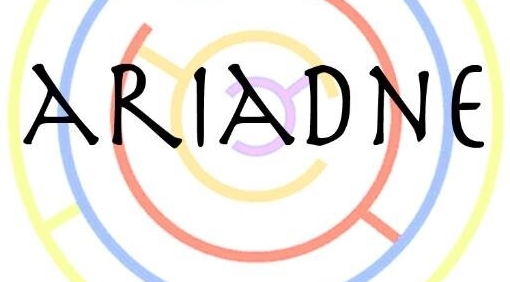Ruwanthie de Chickera
Ruwanthie de Chickera is a Sri Lankan playwright and director whose plays have been performed in Colombo, Bangalore, Mumbai, London, Manchester, New Delhi, Manila, Tokyo, Washington and Australia.
Her first play Middle of Silence written when she was 19 is a play about the power struggle between a married couple and reflects her deep insight into human behaviour and relationships. Middle of Silence won the British Council International New Playwriting Award for South Asia in 1997 and the Gratiaen Award for the best English creative writing in Sri Lanka in 2000. It was the first Sri Lankan play to be performed at the West End (produced by the Royal Court Theatre in 1998).
Ruwanthie's second play Two times Two is Two is a play based on observation with deliberately three dimensional characters. Two times Two is Two was short-listed for the World Student Drama Trust Award in 1998.
Her third play, The Brick Layer was produced at the Contact Theatre in Manchester in 2002. Her most recent work was two one-act plays- The Jony and Urvashi Show and The Blind Poet based on the work of Indian writer Mahasweta Devi and presented by the University of Colombo and Stages Theatre Group.
In 2001, she was awarded the Presidential Scholarship from the Government of Sri Lanka to pursue theatre studies overseas. In 2002, she was featured in the official Queen's Jubilee Celebrations Publication by the Government of the UK for her contribution to theatre.
She obtained her first degree in English Literature at the University of Colombo, and completed her Masters at the University of Manchester, graduating with a First Class with Distinction. In 2005, she was on the panel of judges for the Gratiaen award.
Stages Theatre Group
In 2000, Ruwanthie founded 'Stages Theatre Group' - a theatre group in Sri Lanka committed to producing new plays, encouraging new writing, translations and developing theatre through the workshop method. Stages Theatre Group aims to create theatre that focuses on deep social issues.
Stages Theatre Group's production of Checkpoint – Three Strangely Normal Plays is an example of Forum Theatre. Forum Theatre gives the audience an opportunity to get involved in the making of the play. This means that the actors perform a scene up to a climax and then pause the scene there: the resolution of the crisis or problem is for the audience to decide; the plot unfolds according to the suggestions of the audience.
When Checkpoint was first performed in Colombo in 2001, checkpoints were as common as night boutiques in the city; the content was hailed as a ground breaking piece of Sri Lankan theatre and very relevant at the time. Checkpoint was a composition of three short plays, two being Sri Lankan plays and one being a piece of Forum Theatre.
Walking Path
In July 2014 Stages Theatre Group experimented with devised theatre and Ruwanthie 'scripted' the play without words, Walking Path. Developed through sitting in Colombo's parks observing people and observing people observing people. Walking Path is a play about the new walking path culture of Sri Lanka – the culture of exercise, of healthy living, of beautification of the city and people within it. Walking Path uses Colombo’s walking paths as a symbol to understand this emerging sub-culture in post-war Sri Lanka, and was created along the walking paths of Colombo, where the actors spent many days observing human behaviour and interaction.
"The newly developed Walking Paths are a potent symbol of the country’s peace and freedom following a long conflict, yet it is also an oxymoron, she muses, for “it is freedom monitored by the military”. In the play different scenes tackle the sub cultures that have evolved amongst these Walking Paths. Technology plays a significant role in this evolution, especially in how community is perceived by the new generation.
In presenting a play without words they’ve had to rely on other techniques to get the message across, and music plays a major role in all this-Ruwanthie and her team works with Ranil Goonewardene and she says “he’s brilliant. He’s able to just listen to something and transfer that into music.”
At the end of the day, Ruwanthie feels that a play without words is the right way to move forward; “it feels like it has been born out of this time and age,” she says. “We have a society divided on various issues, and by not saying what we want to say verbally I think we’re bringing people together in a way.”[1]
Grease Yaka is an example of a devised play in Sinhala and English, directed by Ruwanthie de Chickera and presented by AnandaDrama in collaboration with Stages Theatre Group.
"The play was devised by the students and young alumni of Ananda College along with actors who were a part of a series of workshops held under the guidance of Ms. De Chickera and other artists from Stages Theatre Group. They discussed various issues, themes and stories, the play thus an amalgamation of what absorbed them the most, feeding on what they were most passionate about. ‘Grease Yaka’ employs the eponymous phenomenon as a tool and metaphor – providing insight into the fears of society: how they grow into widespread social phobias, how they affect society psychologically and their consequences. By exploring how opinions and fears are turned into stereotypes, stigmas and violence, the play will hold up a mirror to society and show us how things can be manipulated by those with vested interests who’d like such fears to exist for various reasons." [See more at: http://life.dailymirror.lk/article/9154/grease-yaka#sthash.NSXM6O8i.dpuf]
[1] http://www.sundaytimes.lk/141116/plus/its-certainly-no-walk-in-the-park-127692.html

